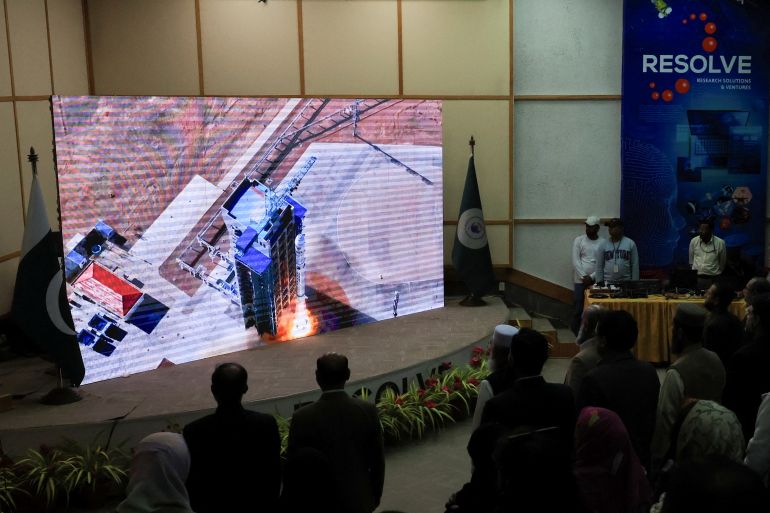BREAKING NEWS: Pakistan has successfully launched its first-ever hyperspectral satellite, the **H1**, from the **Jiuquan Satellite Launch Centre** in northwestern China on **August 27, 2023**. This significant milestone is poised to transform key sectors, including agriculture, urban planning, and disaster management, marking a pivotal advancement for the nation.
The country’s space agency, **SUPARCO**, confirmed the launch, highlighting that hyperspectral technology will enable the detection of subtle chemical changes on Earth that traditional satellites cannot identify. This capability is particularly vital for monitoring crop health, assessing water resources, and evaluating damage from natural disasters.
Pakistan’s Ministry of Foreign Affairs emphasized that the H1 satellite will “significantly enhance national capacities” in areas such as precision agriculture and environmental monitoring. The launch also supports developmental initiatives like the **China-Pakistan Economic Corridor (CPEC)**, aimed at strengthening infrastructure links between **China’s Xinjiang province** and **Pakistan’s Gwadar Port**.
SUPARCO chairman Muhammad Yousuf Khan stated, “The data from the Hyperspectral Satellite is poised to revolutionize agricultural productivity, bolster climate resilience, and enable optimized management of the country’s vital natural resources.” This sentiment underscores the satellite’s potential to drive substantial improvements in Pakistan’s agricultural sector, which is critical for food security and economic stability.
Pakistan’s Foreign Ministry heralded the H1’s deployment as a “pivotal step forward” in its space program. The launch is a testament to the ongoing partnership between Pakistan and China in the peaceful exploration of space, emphasizing their commitment to leveraging space technology for socioeconomic development.
The mission is part of a broader initiative by Pakistan to expand its space capabilities, having already launched two other satellites, **EO-1** and **KS-1**, earlier this year. Both satellites are reported to be fully operational in orbit, contributing to the country’s growing presence in space technology.
It is expected to take approximately **two months** to calibrate the H1 satellite’s systems before it becomes fully operational, according to a SUPARCO spokesperson. As the nation eagerly anticipates the satellite’s full capabilities, the immediate implications for agriculture and environmental monitoring are profound.
As these developments unfold, Pakistan’s advancements in space technology not only reflect a commitment to innovation but also highlight the importance of international partnerships in addressing pressing global challenges. The impact of the H1 satellite will resonate across various sectors, making this launch a significant event for both Pakistan and the region.
Stay tuned for more updates on this groundbreaking mission as it continues to develop.







































































